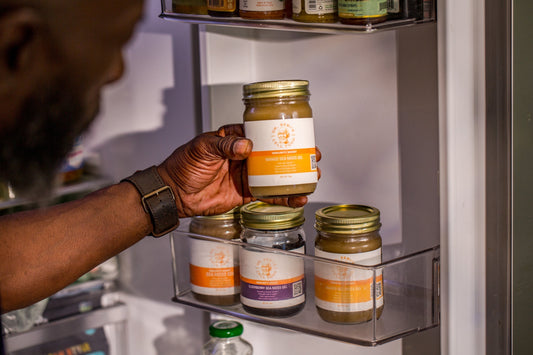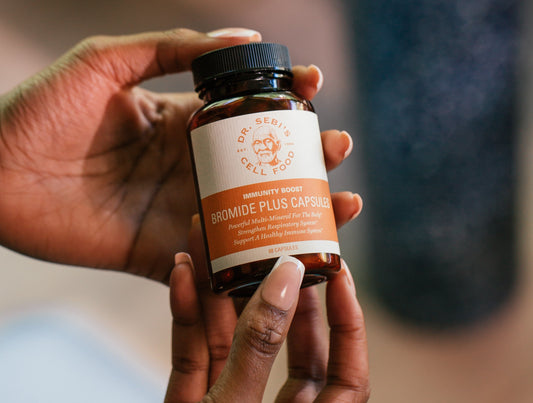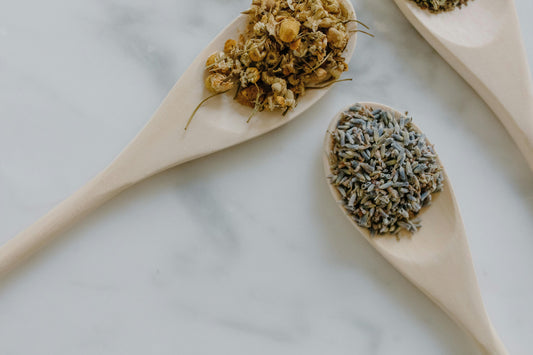Your heart health is not something to be taken lightly. Heart disease is one of the most common causes of death in adults, and nearly half of all adults after a certain age are living with some form of cardiovascular disease. It's imperative for you to understand what causes cardiac risk and how to minimize that risk.
Although 50% of cardiovascular-disease risk is genetic, the other 50% can be modified by how you live your life. According to Dr. Sebi, all manifestation of disease finds its genesis when and where the mucous membrane has been compromised.
For example, if there is excess mucus in the bronchial tubes, the disease is bronchitis; if it is in the lungs, the disease is pneumonia; in the pancreatic duct, it’s diabetes; in the joints, arthritis. This also includes your heart and your whole cardiovascular system!
Here’s how to keep your heart beating as strongly as ever.
Be Proactive
Caring for your health should always be a priority, but even more so when it comes to managing your heart. Plan out your nutrient-rich meals, check your blood pressure daily, and of course, be proactive about treating any symptoms that seem out of the ordinary.
Educate Yourself
Education is the most powerful weapon against heart disease — or against any disease. Stoll, if heart disease runs in your family, or if you suffer from other chronic conditions that put you at a greater risk for chronic health problems, like diabetes or obesity, be sure to educate yourself on the proper way to treat these conditions.
Eat a Heart-Healthy Diet
A healthy diet can reverse disease, and one that is alkaline and packed with fruits, vegetables, and with no animal products, such as the one created by Dr. Sebi, is especially effective in reducing and eliminating your risk for heart disease.
Add More Plants to Your Diet
If you’re already adhering to Dr. Sebi's methodology, you’re eating plant-based and feeling amazing because of it!
But if you want an extra-boost of minerals and nutrients to support your heart health, adding more leafy greens and other veggies to your diet is a marvelous idea. Amaranth and dandelion greens, lettuce, purslane, watercress, and wild arugula are all great options.
Eat Healthy Fats
We don't need to tell you to stay away from animal fats and dairy — we know you already ditched them from your diet. But adding some healthy, plant-based fats to your diet is fantastic for your heart health. Walnuts, Brazil nuts, avocados, and olive oil are all great options.
Limit Refined Sugar
You already know how awful sugar is for your waistline, but Dr. Sebi believed that it was one of the most harmful things you could put in your body. It causes mucus accumulation and promotes acidity in the body, which is terrible for your heart and cardiovascular system.
Reduce Your Salt Intake
If you eat too much salt, the extra water stored in your body raises your blood pressure. So, the more salt you eat, the higher your blood pressure. The higher your blood pressure, the greater the strain on your heart, arteries, kidneys, and brain. This can lead to heart attacks, strokes, dementia, and kidney disease. A small amount of sea salt is okay.
Stop Drinking Alcohol
The negative effects that drinking has on practically every aspect of health is well documented. They are especially risky habits for developing high blood pressure and heart disease, as alcohol can adversely affect some heart medications.
Move Your Body
Exercising can significantly reduce your risk of stroke and heart disease. As little as 15 to 30 minutes of light exercise, three times a week, has been shown to be effective in improving cardiovascular health.
Manage Your Stress
Believe it or not, stress can increase your risk of heart disease similar to smoking and diabetes. That's because chronic stress puts the body into constant fight-or-flight mode, triggering inflammation, high blood pressure, and other unhealthy changes.
It might seem impossible to avoid stress, but when preventing and caring for heart disease, managing stress and anxiety is of utmost importance. Taking 15 minutes a day to meditate, stretch, talk to a friend, grounding, or take a relaxing walk can be enough to reduce your stress levels.
A cup of Dr. Sebi's Stress Relief Herbal Tea and 10 minutes of "me time" can do wonders for your anxiety and stress.
Be Mindful of Your Mental Health
Patients with heart disease and stroke survivors are at a higher risk of developing depression. Having a support system, composed of friends and family you can talk to, and even online communities can be of tremendous help when you start feeling frustrated or depressed. Never bottle your feelings inside — always reach out for help.
Quit Smoking
Cigarettes are terrible for your lungs. But they’re also incredibly bad for your heart, and even one can have an impact on your cardiovascular health and increase the risk of having a heart attack. Smoking increases your risk of atherosclerosis, raises your chances of blood clots, reduces blood flow, and puts you at increased risk for stroke.



















































2 comments
I love it.
Thank You